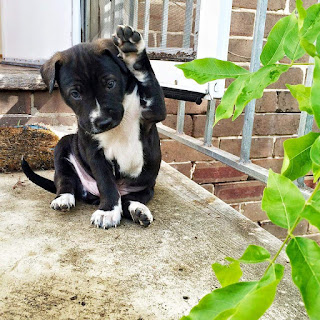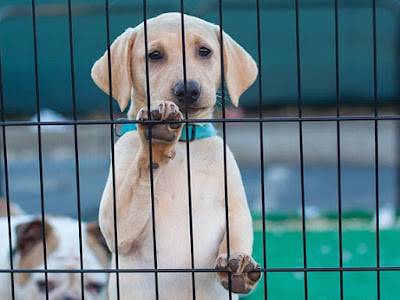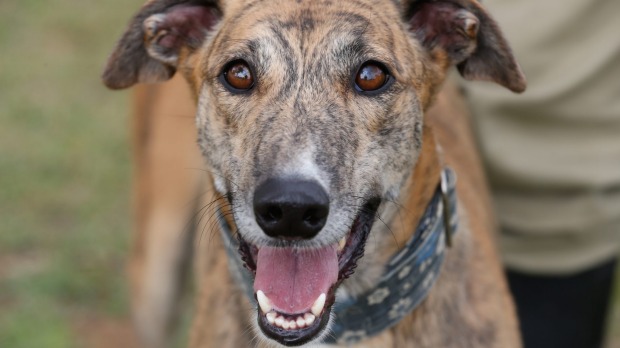Written by
Australian Dog Lover
11:14:00
-
0
Comments
While puppies are too cute, the cute phase is over very quickly and often causes sleepless nights, stains on the Persian rug or much worse the puppy ending up in a shelter. We tend to glorify puppyhood, forgetting that dogs are only puppies for a few months.
So please, make sure that what you really want is a dog and not just the cute puppy!
Are you ready to commit to this dog for life?
Pointing out the obvious, a "puppy" is a 12 to 15 year commitment and a lot of things can change during this time. Some are out of our control, such as family and relationship breakdowns, death, or sickness to name a few; others are very predictable: moving out, getting married, having a baby, the children are growing up, going overseas, having an extended holiday, changing jobs, moving, again just to name a few.
Are you ready to commit to this dog for life?
Pointing out the obvious, a "puppy" is a 12 to 15 year commitment and a lot of things can change during this time. Some are out of our control, such as family and relationship breakdowns, death, or sickness to name a few; others are very predictable: moving out, getting married, having a baby, the children are growing up, going overseas, having an extended holiday, changing jobs, moving, again just to name a few.
If you work full time, have a busy lifestyle, three kids under the age of six, a puppy or a rescue dog might not be a good idea? And if you will not allow the dog in the house, don’t get one! Dogs are not garden ornaments... Also, do not get a dog for the children, because the neighbours got one or because you feel for the cute puppy in the window.
Is owning a dog a right or a privilege? I just read the book Run, Spot, Run: The Ethics of Keeping Pets by Jessica Pierce and it really makes you think twice!
In my opinion, owning a dog is a privilege that comes with a lot of work and a lot of sacrifices.
Forget about sleeping in for a few months or years, forget about going out every night and forget about extended holidays. Before you make a decision ask yourself do you really have the time and commitment it takes to bring up a well adjusted and confident canine citizen? Are you prepared for the challenges of the teenage dog and the heartbreak of living with an older dog?
Which dog is best suited to your family and current lifestyle?
But let's assume you are ready, then the next question is rescue dog, puppy or puppy educator for guide dogs or a similar organisation.
#1. The case for a Puppy
Start with researching the different breeds: whilst most breeds can make a great companion in the right home, some are more challenging for any owner. If you do not want a challenge then you might want to look for an easy going breed.
But let's assume you are ready, then the next question is rescue dog, puppy or puppy educator for guide dogs or a similar organisation.
#1. The case for a Puppy
Start with researching the different breeds: whilst most breeds can make a great companion in the right home, some are more challenging for any owner. If you do not want a challenge then you might want to look for an easy going breed.
Be aware though that there are significant differences within the breed and nurture is as important as nature. Meeting the puppy's parents or at least mum is important.
Make sure you check your dog's exercise requirements. Border Collies as a working breed look stunning but they are often not suitable for an average pet home. Most working dogs need more mental and physical stimulation than a pet home can provide. The same goes for some of the gundogs. A Golden Retriever or a Labrador might be a good choice as a pet, a Vizsla or a German Short-haired Pointer? Maybe a bit less so...
Also consider if the dog comes from a working line or show line as the show lines are often a bit calmer. It is hard to predict the temperament of a cross breed, even the designer breeds, but again meeting mum can give you some ideas.
Another popular choice at the moment are the flat-faced breeds (or brachycephalic breeds), make sure you are aware of the health risks associated with these cute faces.
Some of these dogs struggle to breathe in hot weather or have trouble breathing when lying down. They are often delivered by caesarean section because of their large heads and narrow pelvis.
Another popular choice at the moment are the flat-faced breeds (or brachycephalic breeds), make sure you are aware of the health risks associated with these cute faces.
Some of these dogs struggle to breathe in hot weather or have trouble breathing when lying down. They are often delivered by caesarean section because of their large heads and narrow pelvis.

Go to the dog park and talk to the owners of the dogs you like the look of. What do they say? How does the dog behave? Do you like what you see?
Bringing up a puppy for a Guide Dog or Assistance Dog organisation is a good way of finding out if you are really ready. This arrangement gives you access to ongoing support and if you have any problems, help is nearby. For some it might be attractive to be committed for 12 months only, whilst for others this might be why it is not right for them!
#2. The case for a Rescue Dog
When it comes to rescue dogs there are many reasons to choose a rescue dog:
- You save a life and there are many rescue dogs who make perfect pets.
- What you see is what you get (at least the looks)
- It can be less time consuming.
- Senior dogs make great pets.
- A lot of rescue dogs have had basic training.
- They are screened by some of the rescue organisations.
While I admire the work of rescue organisations there are some dogs who are not suitable for re-homing and responsible rescues will screen for aggression towards humans and other animals.
I am very honest (and yes, I worked in rescue) and in my opinion, dogs who show aggression towards humans should not be re-homed. If a dog shows aggression towards other animals that is a difficult question.
Sometimes there are owners who are ready to take on a dog with these kinds of behaviours but I do not think these dogs are suitable for the ‘average’ dog owner.
If you're deciding to adopt, check out the different rescue organisations and go and visit their facilities. If you have decided on a specific breed, check out the breed rescues too. You might find a pure bred dog in rescue that might just fit the bill.
- What background information do you have on the dog (breed, age, age surrendered, micro chipped, breeder)?
- Did the dog live with a family/single person?
- Has the dog been socialised to people, other dogs, noises?
- Has the dog been on walks in a ‘normal’ suburban area?
- Has the dog been assessed with other dogs?
- Has the dog had some basic training – what are his/her skills (sit, lie down, come, tricks…)?
Make sure you get a trail period of at least 3 weeks.
We sometimes talk about the three threes: three days, three weeks, three months. While it might not be exactly three but rescue dogs are often a bit shell shocked for the first few days in a new home and might be rather cautious, after three weeks they will most likely show their normal behaviour and by about three months, they will have settled into your routine.
Things to consider if you decide to choose a puppy
If you decided to get a puppy then the only way to make sure you are not supporting a puppy mill is to visit the breeder. I do not say a puppy from a puppy mill cannot make a good dog but her parents will never have a life! Breeding dogs in these situations lead a miserable and abusive life. Dogs in pet shops fall in this category too.
A good indication of a puppy mill environment is when the breeder refuses to let you visit or if they want to meet you half way. You want to meet the mother as this will give you a good indication of what to expect with your puppy. Ideally, you would like to meet the father, too, but they often do not live with the breeder.
You should visit even if the breeder is a registered breeder with Dogs NSW (or other relevant bodies in your country or state which you can find here: https://dogsaustralia.org.au/). You are looking for a family member, this means you do not want your puppy to be born and raised in a kennel.
Puppies should be born in a home environment and spend at least the first four weeks inside a family home. You want to know what early socialisation and handling has been done.
Puppies should be handled gently from the very first day by the breeder and should have met all different kind of people (including nice children) by the time they leave for their new homes.
They should have been on different surfaces, heard a lot of different noises, met other animals including other species and older well adjusted dogs. They should have basic training: at least, sit and come when called and house training should be well under way.
What questions should you ask the Breeder?
- Where were the puppies born?
- Who has handled the puppies?
- How many people have they met and what kind of people?
- Have they met other animals/dogs?
- What kind of noises are they used to?
- What surfaces have they been on?
- What training has been done?
Most of all have fun, enjoy puppyhood and take a lot of pictures! Your puppy will grow up in no time.
 Barbara Hodel has been involved in dog training for the last 16 years. She has completed a Certificate IV in Companion Animal Services and a Diploma in CBST (Canine Behaviour Science and Technology). She’s also a Delta-accredited instructor since 2007.
Barbara Hodel has been involved in dog training for the last 16 years. She has completed a Certificate IV in Companion Animal Services and a Diploma in CBST (Canine Behaviour Science and Technology). She’s also a Delta-accredited instructor since 2007. She's also the President of the Pet Professional Guild Australia (PPGA).
She has been running Goodog Positive Dog Training on the Northern Beaches Sydney for the last nine years, running classes on all levels as well as workshops and agility fun classes.
www.goodog.com.au












No comments
Post a Comment